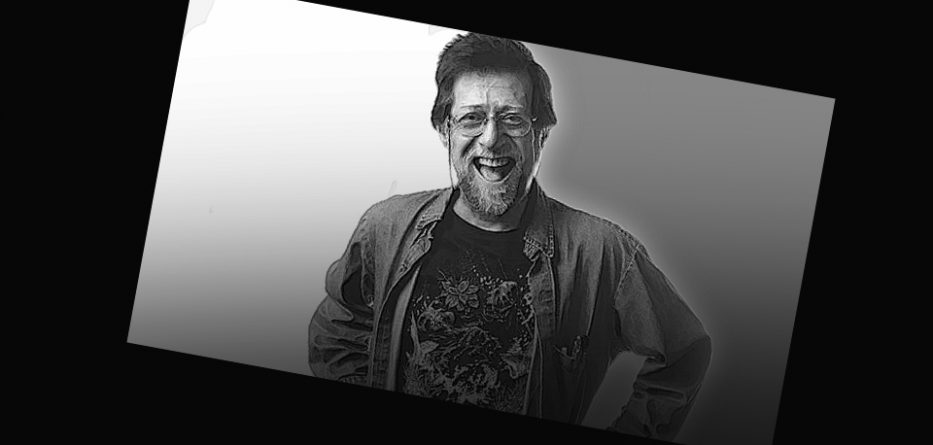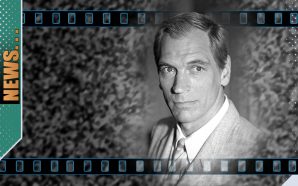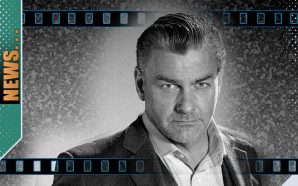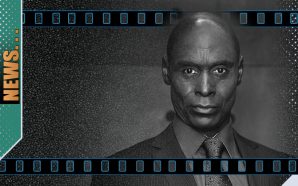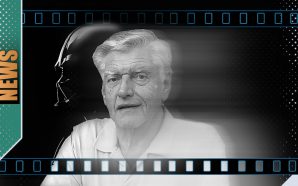He told stories of almost every superhero who ever wore a cape – and a few who haven’t. He was the man who brought Wolverine over the border and the X-Men to the masses. John Mosby remembers Len Wein who has died at the age of 69…
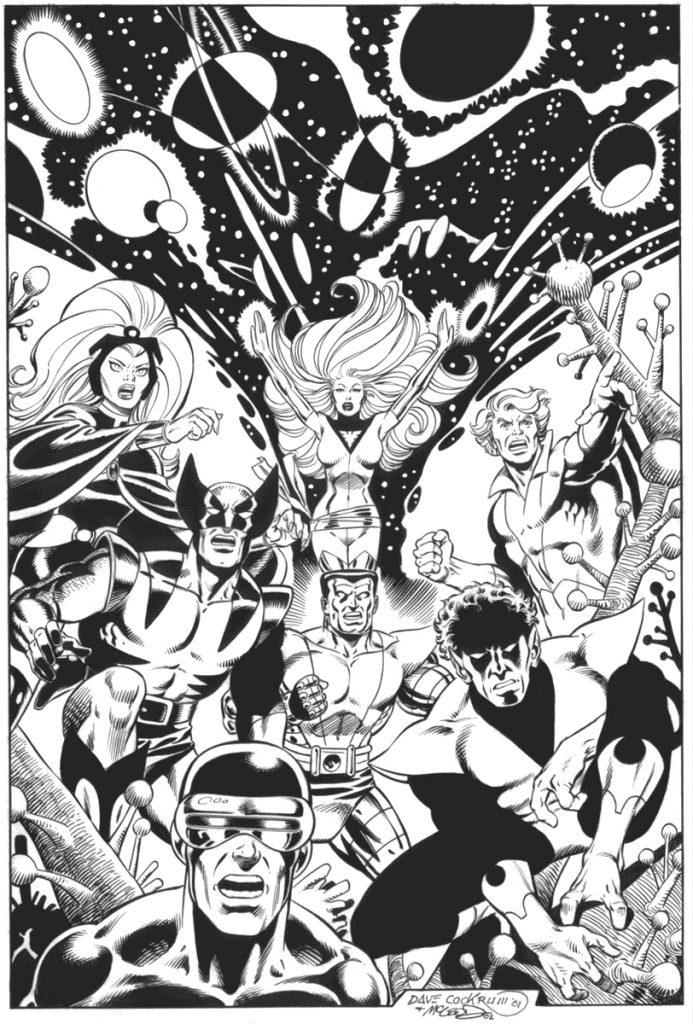 Enter the home of anyone who truly loves what they do and you’ll find an Aladdin’s cave of interesting artefacts, souvenirs and memories. In the case of arriving on the door-step of Len Wein home for a party of close-friends in 2001, it was more like sneaking into the Batcave, mixed in with elements of a Fortress of Solitude, a smidgen of the Danger Room and the photographic gravitas of the Smithsonian. Over there on one wall was a carefully-kept ‘get well’ illustration from the one and only Jack Kirby, the first, first man of comics. Nearby there was a one-off image of the X-Men by Dave Cockrum. A few inches away a watercolour poster of Adrienne Barbeau in the clutches of Swamp Thing was framed in all its glory alongside acclaimed photographs by Len’s wife Chris. And wait… next to those limited edition action figures of Wolverine…could that really be pieces of the Lost Ark resting nonchalantly on the bookcase? Yes, indeed, it can.
Enter the home of anyone who truly loves what they do and you’ll find an Aladdin’s cave of interesting artefacts, souvenirs and memories. In the case of arriving on the door-step of Len Wein home for a party of close-friends in 2001, it was more like sneaking into the Batcave, mixed in with elements of a Fortress of Solitude, a smidgen of the Danger Room and the photographic gravitas of the Smithsonian. Over there on one wall was a carefully-kept ‘get well’ illustration from the one and only Jack Kirby, the first, first man of comics. Nearby there was a one-off image of the X-Men by Dave Cockrum. A few inches away a watercolour poster of Adrienne Barbeau in the clutches of Swamp Thing was framed in all its glory alongside acclaimed photographs by Len’s wife Chris. And wait… next to those limited edition action figures of Wolverine…could that really be pieces of the Lost Ark resting nonchalantly on the bookcase? Yes, indeed, it can.
Several years after the visit, the house burned to the ground claiming many of those unique items but only temporarily sapping the huge positive energy of its inhabitants. That was the thing about Len Wein, it was impossible for him to remain down for long or to be glum in his company. Every photograph you’ll see of the man was plastered with a genuine smile that brought the same to others. He was a man passionate about his work, but more passionate about enjoying life to the full. Learning of his death after frequent bouts of ill-health in the past few years threatens to cast a shadow, but he’d be the first to roll his eyes and tell you to get on with the good stuff.
Though Wein’s name may not be on the lips of cinemas goers, it probably should be. Without him there would be no modern X-Men (at least the best beloved version in which he introduced us to the likes of Storm, Colossus, Nightcrawler and a diminutive little Canadian scrapper called Wolverine). Swamp Thing would have remained up the bog without a paddle and almost every comic book hero you can think of would have had a slightly less interesting history.
“I started reading comics when I was about seven years old. I was a very sickly kid and I was in hospital. My father, God rest him, bought me a big stack of comic books. That was the point I became a ‘fan’,” Len told me. “When I was in the Eighth Grade ( about the equivalent to the first years of UK Secondary Education) I was taking an art class and I drew a picture of a shark which my teacher said was really good and that I actually had artistic talent. That was the moment where I went ‘Wait! If I can draw, maybe I can be a comic-book artist!’ That was the literally the turning point of my life – where I decided I COULD be a comic book professional. I became an art major, studied art in high school and in college. I drew all these stories, took them up to DC Comics to show them how good an artist I’d become… and they liked what I had WRITTEN (laughs). Thus, a career took a left hand turn!”
History does not record the artistic gems we’ve lost to that decision but it does note the writing we got in its place. It’s an impressive list by any standards. Len’s first professional work was in December 1968 and a tale called ‘Eye of the Beholder’, featured in Issue 18 of DC’s Teen Titans. He was partnered with regular co-writer and equal legend in the making Marv Wolfman with whom he had a life-long friendship. This was quickly followed by work on the horror anthology The House of Secrets (also DC) and similar themed titles Tower of Shadows and Chamber of Darkness for Marvel Comics. Realising he could tackle a whole host of genres he soon found himself on titles as diverse as Secret Hearts (romance), Hot Wheels (a toy tie-in) and westerns such as The Bravados and The Sundance Kid. He even penned comic book tie-ins to the Twilight Zone and Star Trek. And he was only just beginning to boldly go.
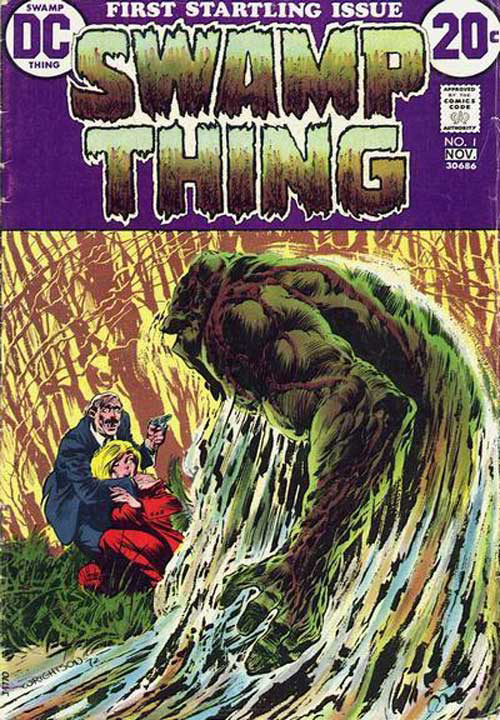 In 1972 Wein teamed up with legendary horror artist Bernie Wrightson to bring DC a contemporary version of the Swamp Thing concept. They’d worked on a short story about the character of the same name in House of Secrets #92, but DC wanted them to expand on the idea of a cursed scientist-turned-Bayou-being. An updated version saw a scientist, Alec Holland, ‘killed’ by his enemies but transformed into a creature at one with the swamps of Louisiana. He looked for vengeance against those who had attacked him and murdered his family and also for a way to become human again. Later, Alan Moore, another industry great, would take the concept and take the environmental elements even further. A pre Nightmare on Elm Street Wes Craven also turned it into a movie.
In 1972 Wein teamed up with legendary horror artist Bernie Wrightson to bring DC a contemporary version of the Swamp Thing concept. They’d worked on a short story about the character of the same name in House of Secrets #92, but DC wanted them to expand on the idea of a cursed scientist-turned-Bayou-being. An updated version saw a scientist, Alec Holland, ‘killed’ by his enemies but transformed into a creature at one with the swamps of Louisiana. He looked for vengeance against those who had attacked him and murdered his family and also for a way to become human again. Later, Alan Moore, another industry great, would take the concept and take the environmental elements even further. A pre Nightmare on Elm Street Wes Craven also turned it into a movie.
“I think you hope anything you write will be well received but I never sat down to write ‘ a success’. I was surprised that a short story, designed to be a one-shot story, found the audience it eventually found,” Len smiled. “The ‘House of Secrets’ issue turned out to be their best-selling book that month, out-selling the superhero titles. Bernie and I had such an emotional attachment to the original short story and how it resonated with certain things in our own lives, that we didn’t want to muddy the waters as an ongoing series. DC’s publisher Carmine Infantino pushed us for the best part of a year and then I woke up one morning and had that light-bulb go on and realised that I didn’t have to write a sequel to the original story, I could simply start over with the same essential premise.”
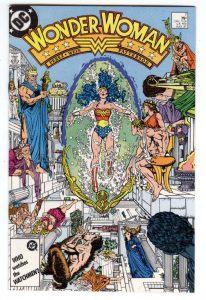 Over his career Len not only took turns with Batman, Superman, Spider-man, Wonder Woman, The Incredible Hulk, The Fantastic Four, The Justice League, Iron Man and Thor but also served as Editor-in-Chief of Marvel Comics itself from 1974-1975. He acknowledges that while the position is an important one, every person who has held it faces somewhat impossible challenges.
Over his career Len not only took turns with Batman, Superman, Spider-man, Wonder Woman, The Incredible Hulk, The Fantastic Four, The Justice League, Iron Man and Thor but also served as Editor-in-Chief of Marvel Comics itself from 1974-1975. He acknowledges that while the position is an important one, every person who has held it faces somewhat impossible challenges.
“Yes, it’s a tremendous responsibility and I think it’s why there was such a frequent turnover at Marvel over the years. People get burned out trying to make everyone happy – and the bottom line is that you never can. Whatever decisions you make regarding the characters… some portion of the audience will think it’s the worse decision you’ve ever made. You can’t win,”.
In 1975 the decision came to relaunch The X-Men with a new roster, Len and artist Dave Cockrum revived the idea first established by Stan Lee and Jack Kirby. It’s hard to believe now but up until that point The X-Men were characters and a title that had proved far from Uncanny. The original title had largely faded from view five years earlier, going into reprints. The ‘75 revamp, which mixed some of the original X-Men line-up with a range of new characters, though arguably as innovative as its predecessor, was not expected to do as phenomenally well as it did. With Len and David initially creating the stories and visuals and Chris Claremont adding some scripting touches to the dialogue, it began a surge of popularity that arguably has lasted through the decades ever since.
“We were being asked to revive the group as an international gang of superheroes. The theory at the time was that Marvel’s books were selling around the world in many other countries and the thought was that ‘maybe we can increase the sales in certain countries if we had a superhero from that country in the book’,” Len explained. “Unfortunately no-one ever gave us a list of which countries we should be aiming for, so we kinda winged it on our own (laughs). Marvel was kinda gung-ho with the idea of reviving the group as a superhero version of a black-ops.”
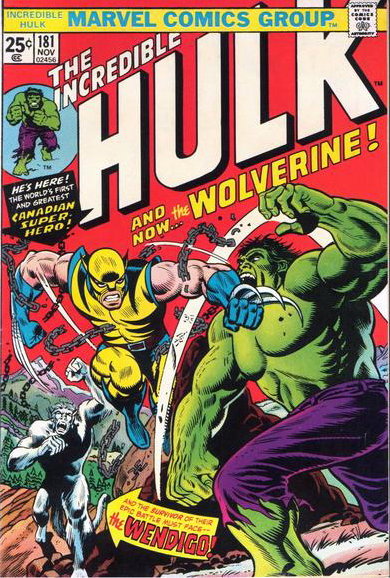 One of the characters considered for the line-up was Wolverine, the Canadian secret agent / superhero whom Len had created for an issue of The Incredible Hulk.
One of the characters considered for the line-up was Wolverine, the Canadian secret agent / superhero whom Len had created for an issue of The Incredible Hulk.
“We just thought it would be good to have someone like that in the book. There was no limitation given to us about who we should or should not include. My idea of Wolverine – and this was before the X-Men book, obviously – that he ‘became’ a mutant on the assumption that whoever ended up taking The X-Men would have a Canadian mutant sitting around and available should they choose to use him. The fact that I turned out to be the person… well I was thrilled… I just made my life easier!”
The success that followed Wein’s kick-start was legendary and while Spider-man may have remained the public face of Marvel success, the X-Men became the poster-children for a new generation of comic book readers and the symbol of any disenfranchised group facing prejudice in the ‘real’ world. It was the perfect metaphor for the very demographic Marvel needed to enthrall.
“History decides if you succeeded or not – I don’t think you ever know for sure,” Len offered when I asked if the success was down to the concept, the timing or a combination of the two. “I mean, I’ve created characters who have been flops as well. You try, every time, to create someone who has a resonance with the audience. If you’re lucky, you hit more often than you miss. I think, ultimately, you always come back to familiar themes with characters. The fact that The X-Men still resonate with an audience after forty years is a huge accomplishment. I think the characters have something that speaks to people of every generation.”
Ask Len if he feels he nailed the definitive story of any of the characters he’s handled and he pauses and shakes his head…
“I don’t think I’ve ever absolutely ‘nailed it’. I think that once you figure you’ve completely nailed it, you’re done and I’m still trying to figure it all out after forty years. My favourite characters of the ones I’ve written… God knows, I loved writing Batman. He’s my all-time favourite character and I did that book for three or four years in various incarnations. I would have happily stayed with it longer if circumstances were different. I would have gladly stayed on that forever,” Len mused. “ At Marvel, my favourite book was The Hulk. I gave up The X-Men so that I could keep writing the Hulk. In retrospect that may have been a bad mistake (laughs), but there’s something about the incarnation of the Hulk that I was writing (and that character been through a thousand metamorphoses over the years) that I just felt made him very human. I loved that aspect. I’ve been honoured and thrilled to have written all the characters I’ve written. The fact that I’ve written arguably every major superhero and character in the business… I’m a guy who has written everyone from Spider-man through The Simpsons. What a wonderful thing to be able to say you’ve done.. AND such great fun!”
Unlike some, I can’t claim to have known Len well, but just to know him was quite enough, to be invited to his home a privilege, to attend two parties with colleagues and friends (one at which I also found myself playing Jenga with Marv Wolfman and Larry Niven, a quite bizarre nexus of realities) and the missed opportunity to perhaps talk with him again the next time I was in LA is a deep regret.
He was a unique voice and really was the best there is at what he did.

